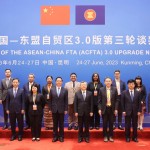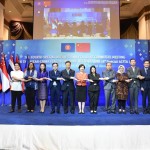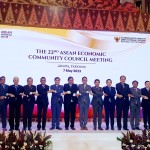Tổng số bài đăng 465.
On the morning of September 23, 2025, the 39th ASEAN Free Trade Area Council (AFTAC 39) and the 57th ASEAN Economic Ministers' Meeting (AEM 57) took place in Kuala Lumpur, Malaysia, chaired by Malaysian Minister of Investment, Trade and Industry, Mr. Tengku Zafrul, with the participation of the Economic Ministers of ASEAN Member States and ASEAN Secretary-General Kao Kim Hourn. Vietnamese delegation was led by Leaders of the Ministry of Industry and Trade and of Viet Nam and included representatives from the Ministry of Industry and Trade (Department of Multilateral Trade Policy, Department of Foreign Market Development, Office of the Inter-sectoral Steering Committee for International Economic Integration) and the Ministry of Foreign Affairs.
At the AFTAC 39, Ministers discussed the implementation of tasks related to the ASEAN Trade in Goods Agreement (ATIGA) such as the approval of Vietnam’s Tariff Reduction Schedule under AHTN 2022 to implement the ATIGA, the development of the ASEAN Trade Facilitation Strategic Action Plan (ATF-SAP) for the period 2026-2030, the implementation of the ASEAN Solutions System for Investment, Services and Trade (ASSIST), the implementation of the ASEAN Customs Transit System (ACTS), the ASEAN Single Window mechanism, the progress of harmonizing standards and ratifying mutual recognition agreements in ASEAN, etc. The Meeting noted that the utilization rate of the ATIGA reached an average level of 52.72% in the period 2021-2024, 58.0% in 2023 and 51.06% in 2024.
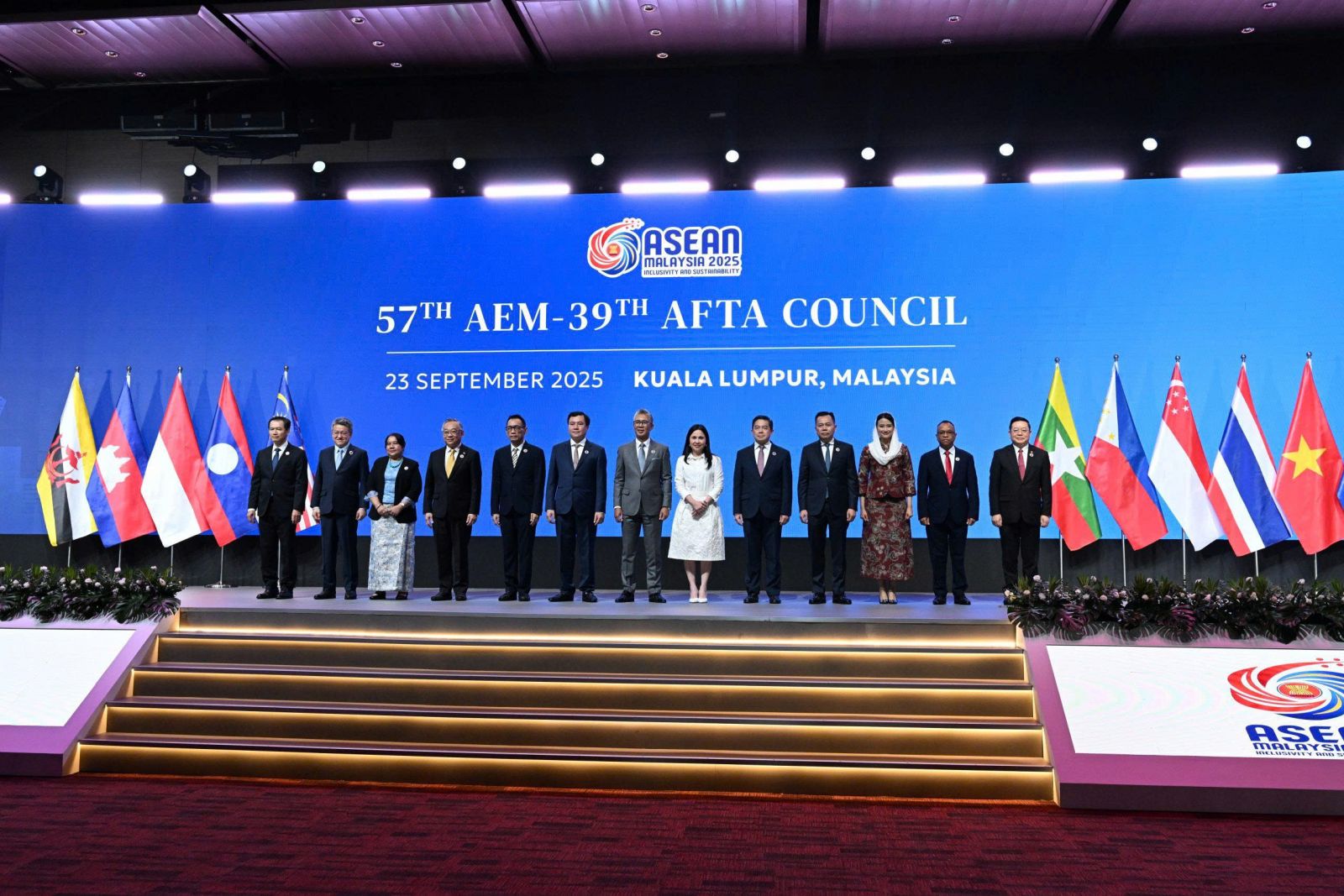
The AFTAC 39 also noted AMS had concluded the negotiations to upgrade the ATIGA and would basically finalize domestic procedures to sign the Second Protocol amending the ATIGA on the sidelines of the 47th ASEAN Summit in October 2025.
At AEM 57, Ministers were updated about the implementation of Malaysia's priority economic deliverables during its ASEAN Chairmanship in 2025, important tasks of the ASEAN Economic Community such as the negotiation of the ASEAN Framework Agreement on Digital Economy, the implementation of sustainability initiatives in the ASEAN Economic Community, the progress of implementing the ASEAN Economic Community Blueprint 2025 and the development of the ASEAN Community Vision 2045 and strategic plans, as well as the preparations for consultations between ASEAN Economic Ministers and partner countries.
Ministers noted that ASEAN continues to demonstrate resilience with growth above the global average (4.8%) in 2024. However, the preliminary ASEAN growth forecast for 2025 has been revised down to 4.2% from the previous forecast of 4.7%, due to global geo-economic context. ASEAN trade is expected to grow strongly by US$3.8 billion in 2024, driven by sustainable demand from major trading partners and intra-ASEAN trade (21.4%) - the largest component of total ASEAN trade). FDI inflows to ASEAN reached US$226 billion, up 8.5% year-on-year; intra-ASEAN investment accounted for 13.9% (the second largest component after investment from the United States - 18.6%).
At the Meeting, Ministers adopted a number of important documents to promote intra-bloc economic cooperation, especially in new and potential areas such as policy recommendations and guidelines for implementing the roadmap for electric vehicle deployment in ASEAN, Study on mapping the ASEAN semiconductor supply chain and the ASEAN Semiconductor Supply Chain Integration Framework, and Framework for capacity building and talent development for inclusive businesses in ASEAN.
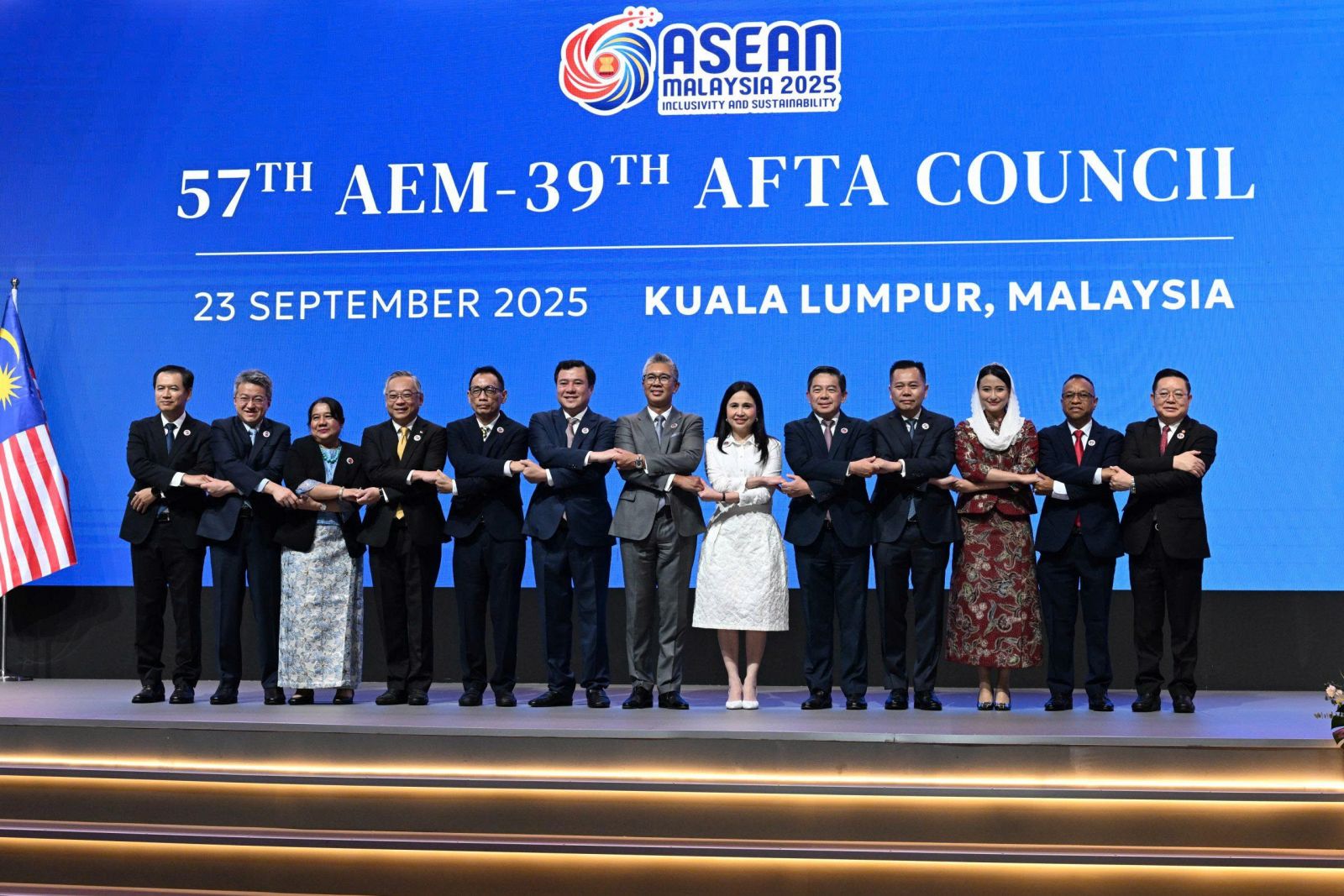
Ministers also spent time discussing the recommendations of the ASEAN Geoeconomic Task Force after meetings held in 2025; recommendations of the High-Level Task Force on ASEAN Economic Integration; progress in implementing the ASEAN Economic Community Strategic Plan 2026-2030, along with initiatives to improve the monitoring and evaluation framework for implementation progress; research report of the Economic Research Institute for ASEAN and East Asia (ERIA) on strengthening ASEAN-Gulf Cooperation (GCC) economic relations; Timor Leste's accession to ASEAN, etc. and review of preparations for the ASEAN Summit and related meetings scheduled to take place in October 2024.
In addition, Ministers also internally discussed economic cooperation activities between ASEAN and dialogue partners such as the United States, China, the European Union, Japan, South Korea, Australia, New Zealand, India, Russia, Canada, the United Kingdom, etc., the implementation of FTA between ASEAN and partners, including the review and upgrading of the ASEAN-India Trade in Goods Agreement (AITIGA), FTA negotiations between ASEAN and Canada, the possibility of establishing a CPTPP-ASEAN Trade and Investment Dialogue mechanism.
Ministers also met and discussed with the ASEAN Business Advisory Council (ABAC) and took note of ABAC's recommendations and priorities in the coming time to strengthen regional trade and investment integration, facilitating cooperation activities on sustainable
development.
Participating in the meetings, Viet Nam requested AMS to acknowledge and adopt her TRS under AHTN 2022 to implement the ATIGA, and also made positive contributions on such issues of intra-ASEAN economic cooperation as promoting the implementation of PEDs proposed by Malaysia, preparations for the signing of the Second Protocol amending the ATIGA and cooperation orientations between ASEAN and the GCC, thereby demonstrating Viet Nam's strong commitment to regional economic integration, maintaining an active role in activities to create momentum for regional and global economic growth as well as strengthening regional supply chains.
The AFTAC 39 and the AEM 57 concluded on September 23, 2025, followed by a series of Economic Ministerial Consultations between ASEAN and its dialogue partners scheduled to take place from September 24 to 26, 2025./.
Source: Compiled by the Multilateral Trade Policy Department, Ministry of Industry and Trade of Viet Nam







